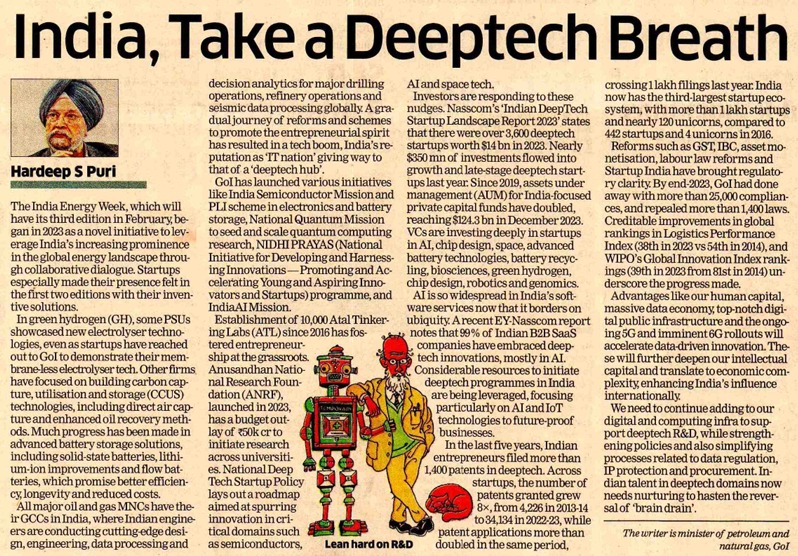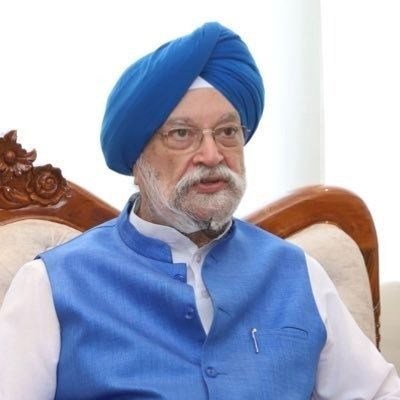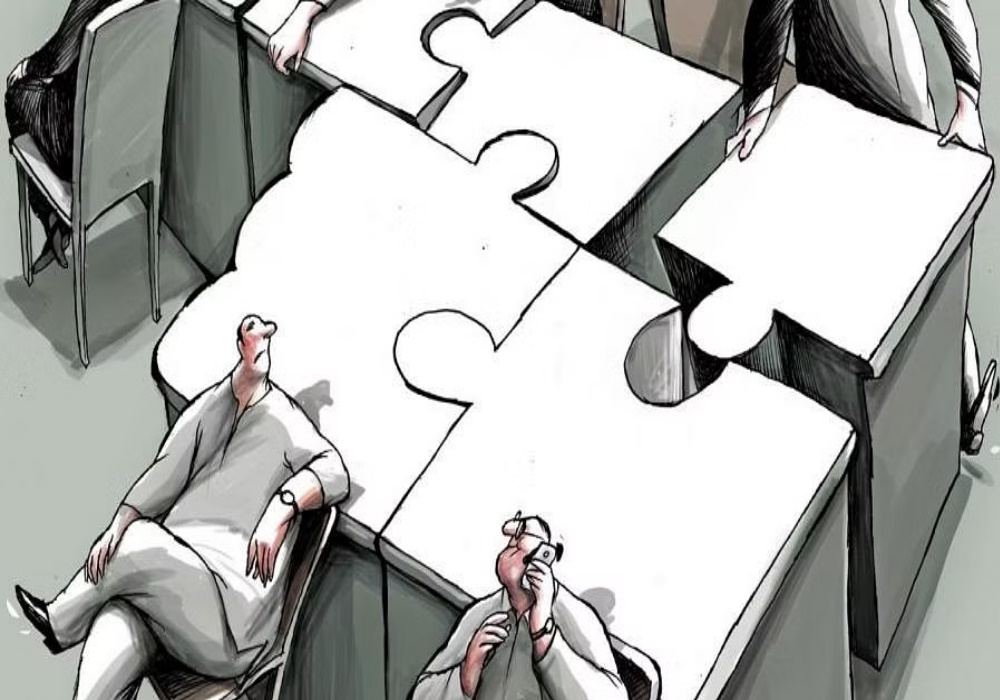Shift in how govt serves people: Minister Hardeep S Puri summarises Modi's 8 year
There has been a paradigmatic shift in governance since May 26, 2014.
Providing dignity to millions of Indians and empowering them to escape from poverty during the last eight years can be measured and empirically verified. The Modi government's focus on delivering goods and services efficiently to every citizen is underpinned by the philosophy of 'Sarvodaya through Antyodaya'. The government has followed the principle of 'good governance is good politics', and has reaped rich dividends by receiving people's trust.
May 2014 was a historic victory. Critics were confused and astounded. What many pundits did not factor in was that elections are not decided in television studios or living rooms in urban centres. They are determined by the common people who brave harsh weather and go out to vote.
The ten years preceding 2014 had seen India restless, with a government at the Centre characterised by policy paralysis, which was made worse by a culture of impunity and a powerful stench of corruption.
The UPA government was so overcome with lethargy that perceptions spread that even national security issues were compromised as critical defence purchases were delayed. The country faced an upsurge of terror attacks. Indians abhorred the state's spineless response. In 2014, people voted for change, for decisiveness, for corruption-free governance and administration and, for lost pride.
The last eight years bear testimony to changes on all fronts. The first message was zero tolerance for corruption -- a message sent out from the first meeting of the Council of Ministers and the Cabinet that took place after the Modi government was sworn in. The bureaucracy was given the message to take decisions without fear or favour. Officials were assured that they would not face harassment for a decision taken if the intent was honourable.
The PM has led from the front throughout. Modi ended policy paralysis, replacing it with clear decisions, relentless implementation and monitoring, weeding away inefficiencies. In the ten years of the UPA, a record 96 Groups of Ministers (GoMs) and Empowered Groups of Ministers (EGOMs) were constituted. Many became graveyards of decision-making. If you wanted to avoid or defer a decision, constituting a GoM provided a way out.
The prime minister noticed another area where important decisions taken in the past were lying unimplemented, resulting in huge cost and time overruns. A consequence of poor implementation focus, state and central government officials and other stakeholders lost track of the project outcomes. An institutional mechanism was put in place -- PRAGATI (Pro-active Governance and Timely Implementation). At every PRAGATI meeting, chaired by the PM, long-delayed projects were reviewed with the ministry secretaries, state chief secretaries and stakeholders. Differences were sorted out, inefficient officials pulled up, and timelines set.
The NDA government's flagship schemes are reviewed under PRAGATI. This focussed monitoring of implementation has been responsible for the manner in which targets were achieved. The Pradhan Mantri Awas Yojana - Urban (PMAY-U) had a target of one crore houses which was revised to 1.12 crore houses. At the end of the mission period of March, 31, 2022, a record 1.22 crore houses stood sanctioned with more than 60 lakh houses delivered to beneficiaries and the balance to be completed within stipulated timelines. This is a story replicated in all major government programmes.
There has also been a huge focus on mainstreaming technology in implementation. The best way to reduce scope for corruption is to lessen human interface. The PM had directed all ministries to engage with the Indian Space Research Organisation (ISRO) to maximise ways in which space technology tools could be used to speed up implementation and increase efficiencies. In the eight years of the Modi government, the massive impetus on Jan Dhan bank accounts, the use of Aadhaar and mobile technology - known as the JAM trinity - ushered in change. When money meant for the poor reach their bank accounts in full, with no siphoning off by middlemen, the poor remember Modi's promise - Na Khaunga na Khane doonga. Here is a PM who keeps his promise.
As we celebrate the 75th year of Independence, we are heading towards 'Amrit Kaal'. The PM has set his sights on the centenary of the Republic in 2047. He is, in his own words, not the Pradhan Mantri but Pradhan Sevak, living that sobriquet every moment of his life. He is busy charting out the roadmap for India@100. That is a long haul, and will require enormous energy. The PM draws his energy from the people of India. India is safe and on the road to prosperity.

The India Energy Week, which will have its third edition in February, be- gan in 2023 as a novel initiative to lev- erage India's ...

Unprecedented measures have been taken in the last 10 years to improve the welfare of the Sikh community and redress long-standing...

Several initiatives by the government have ensured that citizens do not bear the brunt of price increases. Naysayers want to ignor...

A pragmatic and balanced strategy has helped India to keep prices of petrol, diesel and gas under check....

DOMINANT narratives are often presented as an objective truth. ...

There is talk brewing once again of a grand political alliance in 2024 against the Modi government. ...

As the world’s fastest-growing major economy with rising energy needs, India will account for approximately 25% of global energy...

As the world’s fastest-growing major economy with rising energy needs, India will account for approximately 25 per cent of the g...

The inaugural event of the Urban 20 Engagement Group was held in Ahmedabad on February 9-10, 2023....